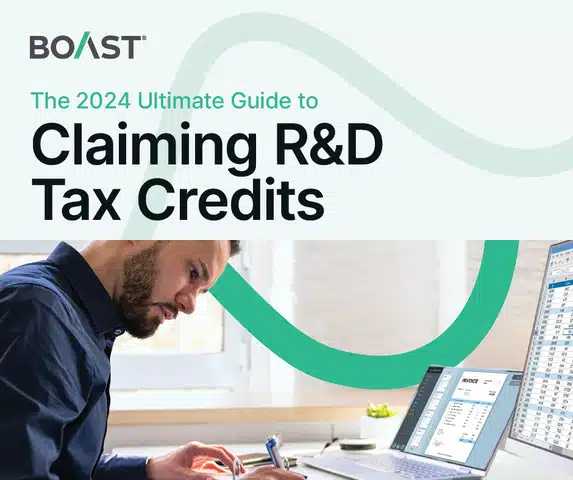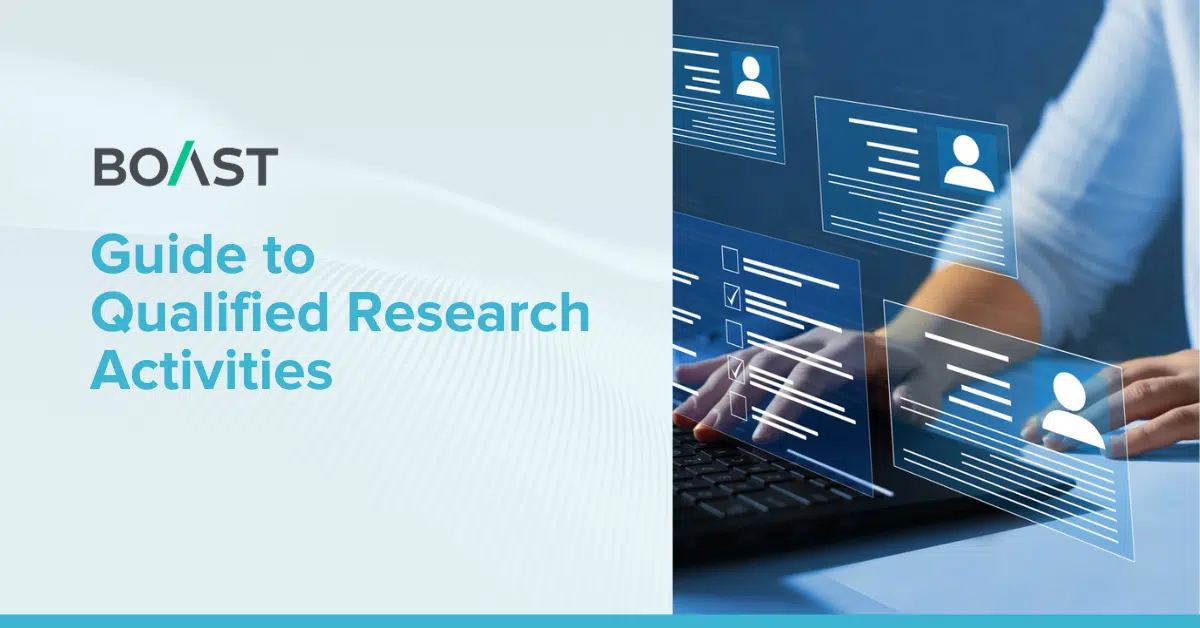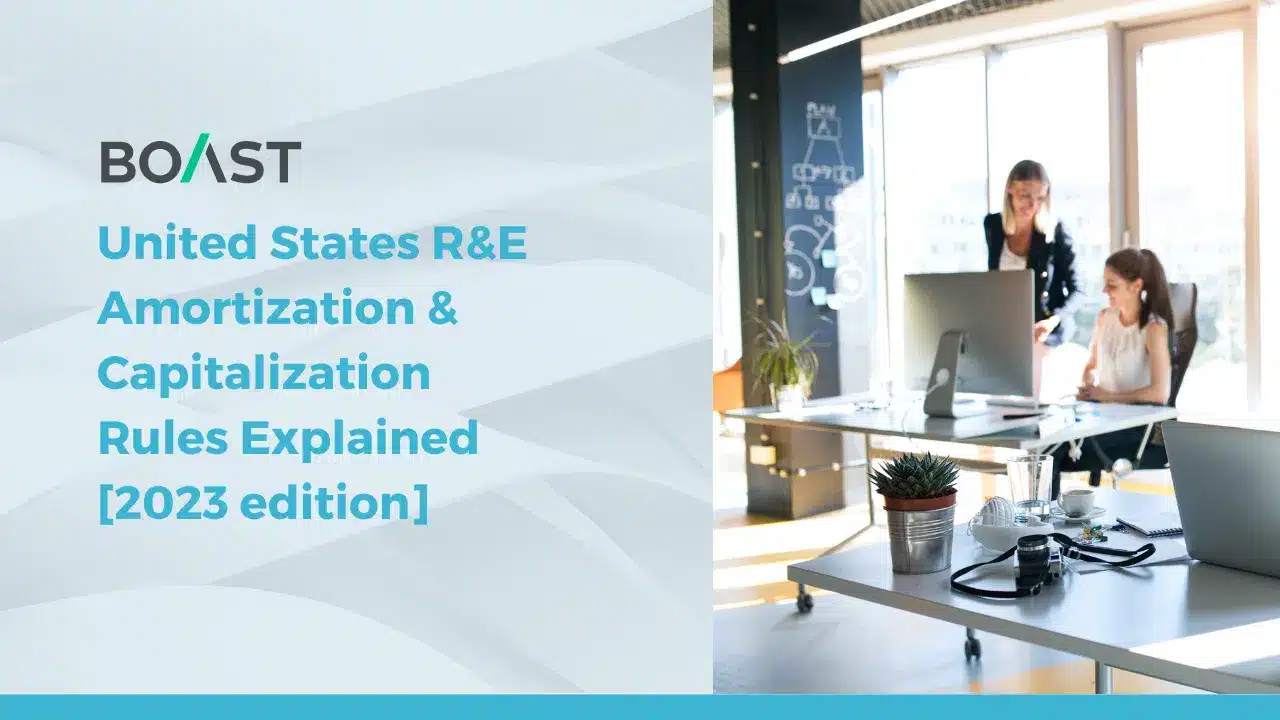

The US R&D Tax Credit
Fuel Innovation and Growth
If you’re driving innovation in the United States, Boast wants to help you fund it by seamlessly maximizing your access to the R&D tax credits you deserve.
What is the R&D Tax Credit?
Internal Revenue Code Section 41 is a federal tax incentive that allows businesses to receive a credit for eligible expenses related to Research and Development (R&D) activities conducted in the United States.
Established in 1981 and made permanent in 2015, the R&D tax credit encourages companies to invest in innovation by offsetting costs associated with developing new or improved products, processes, software, techniques, formulas or inventions.
Every year, thousand of business across the U.S. use this source of non-dilutive funding to help extend their project runways and stretch their R&D investments further.
Who Qualifies?
Businesses of any size or sector can claim the R&D tax credit, provided they meet these criteria:
Qualified Research Activities:
Activities to develop new or improved products, processes, software, techniques, formulas or inventions
Activities that are technological in nature involving engineering, computer science, biological sciences, etc.
Process of experimentation to overcome technical uncertainties.
Common Eligible Industries:

Software & Gaming
Boast specializes in software and gaming claims. We know what qualifies, and how to get the most from your R&D investments.

Manufacturing Companies
Manufacturing R&D is unique. Maximize your claim with Boast experts who understand how to claim manufacturing R&D the right way.

Biomedical & Life Sciences
Detailed documentation for biomedical and life science claims are required. Fortunately, Boast works with you to capture eligible work from your detailed records.

Energy
Boast experts help maximize energy claims based on your detailed R&D project, financial, and payroll records.

Computer Manufacturing
The computer manufacturing industry has been one of the most important and innovative industries.

Medical Devices
Medical devices are products that may assist with the diagnosis, cure, mitigation, or prevention of disease or other ailments.

Telecommunication Networking
The Telecommunication Network R&D Tax Credit is a federal tax credit available to businesses engaged in research and development activities related to telecommunication networks.

Cell Phone Network
The Cell Phone Network R&D Tax Credit is available to companies that develop and deploy new or improved cell phone networks, including those that use new technologies, such as 4G and 5G.

Video Game Software Publishing
The Video Game Development Tax Credit (VGDTC) provides a refundable tax credit to Canadian-controlled corporations developing video games that are considered cultural products.
What Expenses Qualify?
The key expenses that can qualify for the R&D tax credit include:
How is the Credit Calculated?
The R&D tax credit is calculated as a percentage of eligible qualified research expenses (QREs). The rates are:
The credit can be claimed annually and applied against a company’s payroll tax or income tax liability. Certain startup businesses may also be able to use the credit against their payroll taxes.
Streamline R&D Tax Credit Claims with Boast
Boast provides an innovative software solution to automate and maximize your R&D tax credit claim, while providing expert tax professionals to guide you.
With Boast’s technology and expertise, you get larger, more accurate claims with less time and effort from your team. You can truly accelerate your innovation funding with Boast.
Testimonies
What customers say about Boast
“We wanted to pursue an R&D tax credit refund with Boast once we understood the opportunity it posed for us. We love Boast’s technology-first approach which is different from traditional approaches with how it streamlines the process.”
“One of the things I liked about Boast was that I didn’t have to be a domain expert to maximize our output…I still don’t fully understand how it works, but it works perfectly, and that’s what matters.”
US R&D Resources

Taking advantage of R&D tax credits can help you fuel innovation by offsetting your income…

The IRS outlines a four-part test that activities must pass to be designated an R&D…

Tax Day came and went this year, but the IRS’s Section 174 rule remained unchanged,…


